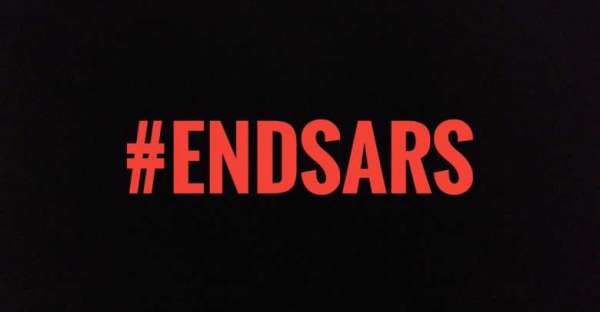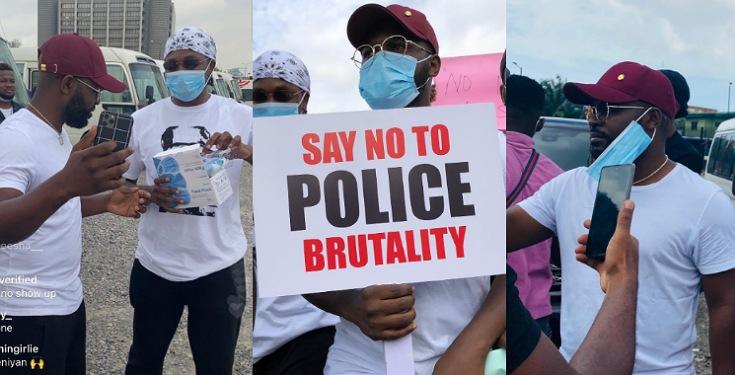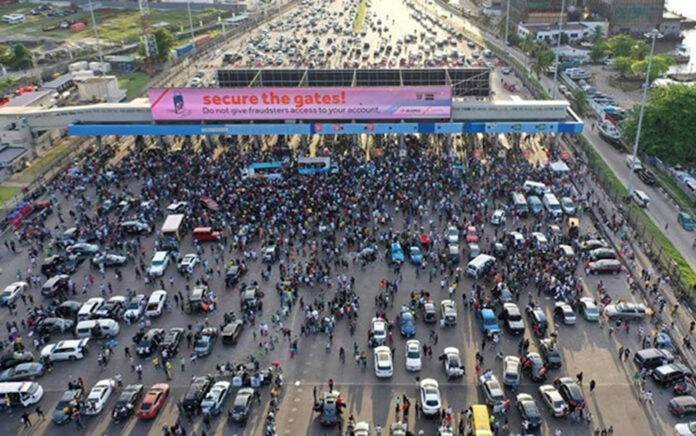Over the years, there have been so many cases of police brutality and senseless killings of innocent people. It is a major issue in Nigeria. “Police is your friend,” a slogan used by the Nigerian Police, has become very contradictory.
The police force, which has been entrusted with protecting life and property, became a metaphor for abuse of citizens rights. Its operatives often use force beyond the limits permissible by law, infringing on the rights of innocent civilians and causing a lot of harm and pain to people. The sheer enormity of the abuses was what led to the #ENDSARS protests across the country last year.

On October 3, 2020, protests were sparked off by a viral video allegedly showing the notoriously brutal Special Anti Robbery Squad (SARS) officers killing a young man in Delta State. The authorities claimed the video was fake and arrested the man who made it, provoking even more anger among Nigerian youths. They took to social media with the hashtag #EndSARS.
Demonstrations started in major cities across Nigeria. Hundreds of youths gathered in central Lagos, holding banners reading “respect for human rights” and “a more equal society.” In capital Abuja, dozen demonstrated with police forces using tear gas to disperse protesters.
On October 11, the former inspector-general of police, IGP Muhammed Adamu, announced the dissolution of SARS after days of widespread demonstrations against police brutality. The dissolution of the unit was with immediate effect, in response to the yearnings of the Nigerian people. All SARS officers were to be redeployed to other police commands, formations and units.
Days after, as protests intensified, the Nigerian Army warned all subversive elements and troublemakers that it would defend the country and her democracy at all cost. And so the Army waded in to maintain law and order and deal with the situation decisively.
The demonstrations rocked the country for two weeks, which forced the government into agreeing to disband SARS and set up judicial panels of inquiry to investigate the widespread allegations of abuse by officers.
Security forces were accused of shooting dead demonstrators. Thereafter, a curfew was imposed on major cities ravaged by violent protests. President Muhammadu Buhari would later assure the youth of the federal government’s commitment to meeting their demands.
One year later, what has changed? What are the gains of the protests? Has the protest really stopped police brutality and built public confidence in the police. The answer is no.
There are reports of numerous #ENDSARS protesters languishing in various correctional centres across the country. The public pulse is that things have not really changed for the better. The insecurity in the country is at an all-time high. The police are still extorting and harassing Nigerians at every opportunity.
Right after the protests, security forces were a little careful, but they have since returned to their bad behaviour. Look at the panels of inquiry that sat across the country; what has happened to the police or to the security forces that perpetrated acts of violence?
The government ordered each of Nigeria’s 36 states, along with the capital, to look into the abuses. Seven states did not comply – Borno, Jigawa, Kano, Kebbi, Sokoto, Yobe and Zamfara – and those where the judicial panels did sit were hit by prolonged adjournments with members of the police not showing up when called to give testimony, and were criticised for a lack of transparency.
Of the 18 states that concluded hearings, none appear to have made their findings public, fuelling accusations that the process was just a PR exercise.
Compensation worth more than $1bn Naira ($2.4m or £1.8m) has been reportedly issued to victims of police brutality and their families by the panels, but nothing in the way of concrete recommendations has been instituted or passed into laws.
The Lagos State Judicial Panel on Restitution for Victims of SARS-related abuses and other matters has delivered its decision on 34 petitions pending before it.
The 34 cases are petitions by victims of the defunct Special Anti-Robbery Squad (SARS) and other arms of the police, who have gone to court, obtained judgements but are unable to execute them.
In the different petitions, victims of abuses narrated their ordeals with officers of the defunct SARS and how they were awarded compensations in competent courts of jurisdiction but yet to receive the relief.
As a newspaper, it is our opinion that the police authorities are yet to carry out real reforms in the police. There are also reports of Nigerians being harassed by officers who still identify themselves as belonging to SARS. At the end of the day, where is the justice?
We, therefore, call on the government to ensure justice and fairness to all affected. It should not miss this opportunity to right the wrongs of the past.
















